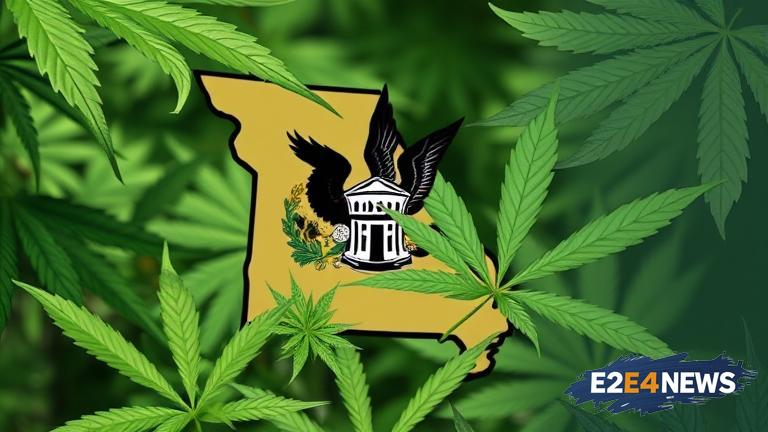The cannabis industry in Missouri is eagerly awaiting the potential rescheduling of marijuana by the federal government. If this happens, it could have far-reaching consequences for the state’s cannabis market. Currently, marijuana is classified as a Schedule I substance, which limits its use and research. However, if it is rescheduled to a lower category, it could open up new opportunities for investment, research, and economic growth. This change could also lead to increased access to banking services for cannabis businesses, making it easier for them to operate and expand. Additionally, rescheduling could pave the way for more research into the medical benefits of marijuana, potentially leading to new treatments and therapies. Missouri’s cannabis market has already seen significant growth since the state legalized medical marijuana in 2018. However, the federal prohibition on marijuana has limited the industry’s potential. If the federal government reschedules marijuana, it could lead to a surge in investment and innovation in the state’s cannabis market. This could create new jobs and stimulate economic growth, particularly in rural areas where cannabis farms and processing facilities are often located. Furthermore, rescheduling could also lead to increased tax revenue for the state, as the cannabis industry becomes more legitimate and mainstream. The potential rescheduling of marijuana has also sparked debate about the potential risks and benefits of increased cannabis use. Some experts have raised concerns about the potential for increased youth access to marijuana, while others argue that rescheduling could lead to better regulation and safer products. Despite these concerns, many in the cannabis industry believe that rescheduling is a necessary step towards creating a more rational and evidence-based approach to marijuana policy. The federal government’s decision on rescheduling marijuana is expected to have significant implications for Missouri’s cannabis market, and the state’s industry leaders are watching closely. If rescheduling happens, it could be a major turning point for the state’s cannabis industry, leading to increased investment, research, and economic growth. The potential benefits of rescheduling are numerous, and many in the industry are hopeful that it will happen soon. In the meantime, Missouri’s cannabis market continues to grow and evolve, with new businesses and products emerging all the time. The state’s medical marijuana program has been successful, with thousands of patients accessing cannabis for a range of medical conditions. However, the federal prohibition on marijuana has limited the program’s potential, and rescheduling could be the key to unlocking further growth and development. As the federal government considers rescheduling marijuana, Missouri’s cannabis industry is poised for significant changes. The state’s industry leaders are preparing for a potential surge in investment and innovation, and are hopeful that rescheduling will lead to increased access to banking services, research, and economic growth. The potential rescheduling of marijuana is a complex issue, with many different factors at play. However, one thing is clear: if it happens, it will have significant implications for Missouri’s cannabis market. The state’s industry leaders are watching closely, and are preparing for a potential new era in the cannabis industry. With its strong medical marijuana program and growing cannabis industry, Missouri is well-placed to take advantage of the potential benefits of rescheduling. As the federal government considers this issue, the state’s cannabis industry is holding its breath, waiting to see what the future holds. The potential for increased investment, research, and economic growth is significant, and many in the industry are hopeful that rescheduling will happen soon. In conclusion, the potential rescheduling of marijuana by the federal government has significant implications for Missouri’s cannabis market. If it happens, it could lead to increased investment, research, and economic growth, and could be a major turning point for the state’s cannabis industry. The state’s industry leaders are watching closely, and are preparing for a potential surge in investment and innovation.
